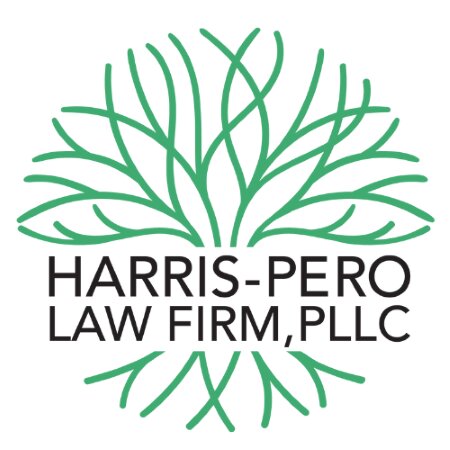Best Trusts Lawyers in New York
Share your needs with us, get contacted by law firms.
Free. Takes 2 min.
Or refine your search by selecting a city:
List of the best lawyers in New York, United States
About Trusts Law in New York, United States
Trusts are legal arrangements where a person, known as the grantor, transfers ownership of assets to a trustee, who then manages those assets on behalf of beneficiaries. In New York, trusts can be used for a variety of purposes, such as estate planning, asset protection, charitable giving, and providing for individuals with special needs. Trusts in New York are governed primarily by the Estates, Powers and Trusts Law (EPTL). Setting up a trust can help individuals avoid probate, maintain privacy, and exercise greater control over how and when their assets are distributed.
Why You May Need a Lawyer
There are many situations where legal assistance is crucial when dealing with trusts in New York. Common reasons to seek the help of a trust attorney include:
- Creating a trust that is tailored to your specific needs and goals
- Ensuring compliance with New York trust laws and tax regulations
- Managing complex family or financial situations, such as blended families or significant assets
- Representing trustees or beneficiaries in disputes
- Handling the administration of a trust after the grantor’s death or incapacity
- Addressing situations where a trust is being challenged or contested
- Protecting assets for minors or individuals with special needs
- Understanding the implications of irrevocable versus revocable trusts
Lawyers who specialize in trusts can guide you through the process, help avoid costly mistakes, and ensure your wishes are carried out properly.
Local Laws Overview
Trusts in New York are subject to specific state laws and regulations that impact how trusts are created, managed, and administered. Here are key aspects you should be aware of:
- The Estates, Powers and Trusts Law (EPTL) is the main body of law governing trusts in New York.
- There are both revocable trusts (which can be altered or revoked by the grantor during their lifetime) and irrevocable trusts (which cannot typically be changed after creation).
- Trustees have fiduciary duties which require them to act in the best interests of beneficiaries and manage trust assets prudently.
- New York law requires certain formalities for creating a valid trust, such as proper execution and clear identification of the trust property, trustee, and beneficiaries.
- Trusts are subject to state income tax if they are considered New York resident trusts.
- The Surrogate’s Court may become involved in trust matters, especially if there is a dispute or if judicial supervision is required.
- New York has procedures for modifying or terminating trusts under certain circumstances.
- Special rules apply for supplemental needs trusts which protect government benefits for individuals with disabilities.
Frequently Asked Questions
What is the difference between a revocable and irrevocable trust?
A revocable trust allows the grantor to retain control and make changes or revoke the trust during their lifetime. An irrevocable trust cannot typically be changed or revoked once it is established, offering stronger asset protection and potential tax benefits.
Do trusts avoid probate in New York?
Yes, assets placed in a properly structured trust typically avoid the probate process, allowing for faster and more private distribution to beneficiaries.
Can I serve as my own trustee in New York?
Yes, you can act as your own trustee for a revocable trust. However, it is common to appoint someone else as a successor trustee to take over if you become incapacitated or pass away.
Are trusts subject to taxes in New York?
Trusts may be subject to New York State income tax if they are resident trusts. Estate tax may also apply depending on the value of the estate. Consulting a tax professional or attorney is recommended.
What assets can be placed in a trust?
Almost any type of asset can be placed in a trust, including real estate, bank accounts, investment accounts, life insurance policies, and personal property.
Can trusts be contested in New York?
Yes, trusts can be contested for reasons such as lack of capacity, undue influence, or improper execution. Disputes are typically resolved in Surrogate's Court.
How is a trustee appointed or removed?
The grantor typically designates a trustee in the trust document. If a trustee is unable or unwilling to serve, or if removal is necessary, the Surrogate’s Court may appoint a replacement.
What are the duties of a trustee in New York?
Trustees in New York must act in the best interests of the beneficiaries, manage assets prudently, provide accounting, and follow the terms of the trust agreement.
Can a trust help protect assets from creditors?
Certain types of irrevocable trusts can offer asset protection from creditors, but this depends on when the trust was created and other factors. Legal advice is essential.
What is a supplemental needs trust?
A supplemental needs trust is designed to provide for individuals with disabilities without jeopardizing their eligibility for government benefits like Medicaid or SSI.
Additional Resources
Several organizations and government bodies in New York offer resources and information related to trusts:
- New York State Unified Court System - Surrogate’s Court
- New York State Bar Association - Trusts and Estates Section
- New York Department of Financial Services
- Legal Aid Societies in various counties
- Local law libraries and pro bono legal clinics
- National Academy of Elder Law Attorneys (specializing in trusts and elder law)
Next Steps
If you need legal assistance with trusts in New York, it is important to start by consulting a qualified attorney who specializes in trusts and estate law. Begin by assessing your individual needs and gathering relevant financial and family information. Consider scheduling an initial consultation to discuss your goals and any unique circumstances. An attorney can help you understand your options, draft necessary documents, and guide you through the legal requirements specific to New York. If you are involved in a trust dispute or administration issue, seeking expert advice as soon as possible can help protect your interests and ensure proper resolution.
Lawzana helps you find the best lawyers and law firms in New York through a curated and pre-screened list of qualified legal professionals. Our platform offers rankings and detailed profiles of attorneys and law firms, allowing you to compare based on practice areas, including Trusts, experience, and client feedback.
Each profile includes a description of the firm's areas of practice, client reviews, team members and partners, year of establishment, spoken languages, office locations, contact information, social media presence, and any published articles or resources. Most firms on our platform speak English and are experienced in both local and international legal matters.
Get a quote from top-rated law firms in New York, United States — quickly, securely, and without unnecessary hassle.
Disclaimer:
The information provided on this page is for general informational purposes only and does not constitute legal advice. While we strive to ensure the accuracy and relevance of the content, legal information may change over time, and interpretations of the law can vary. You should always consult with a qualified legal professional for advice specific to your situation.
We disclaim all liability for actions taken or not taken based on the content of this page. If you believe any information is incorrect or outdated, please contact us, and we will review and update it where appropriate.
Browse trusts law firms by city in New York
Refine your search by selecting a city.















